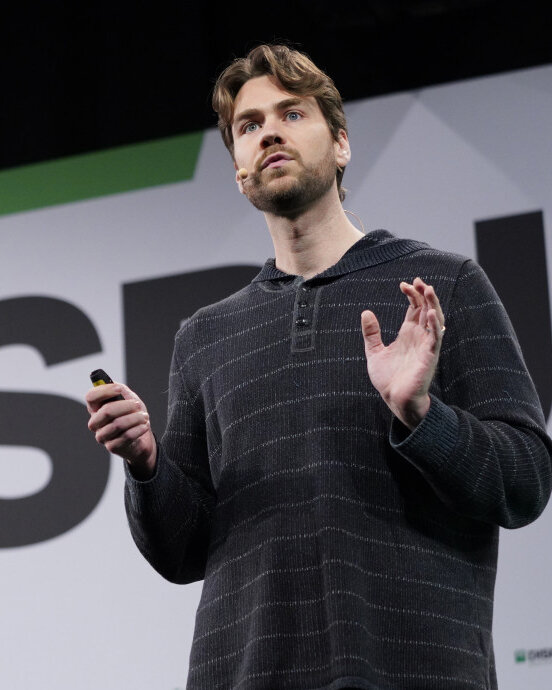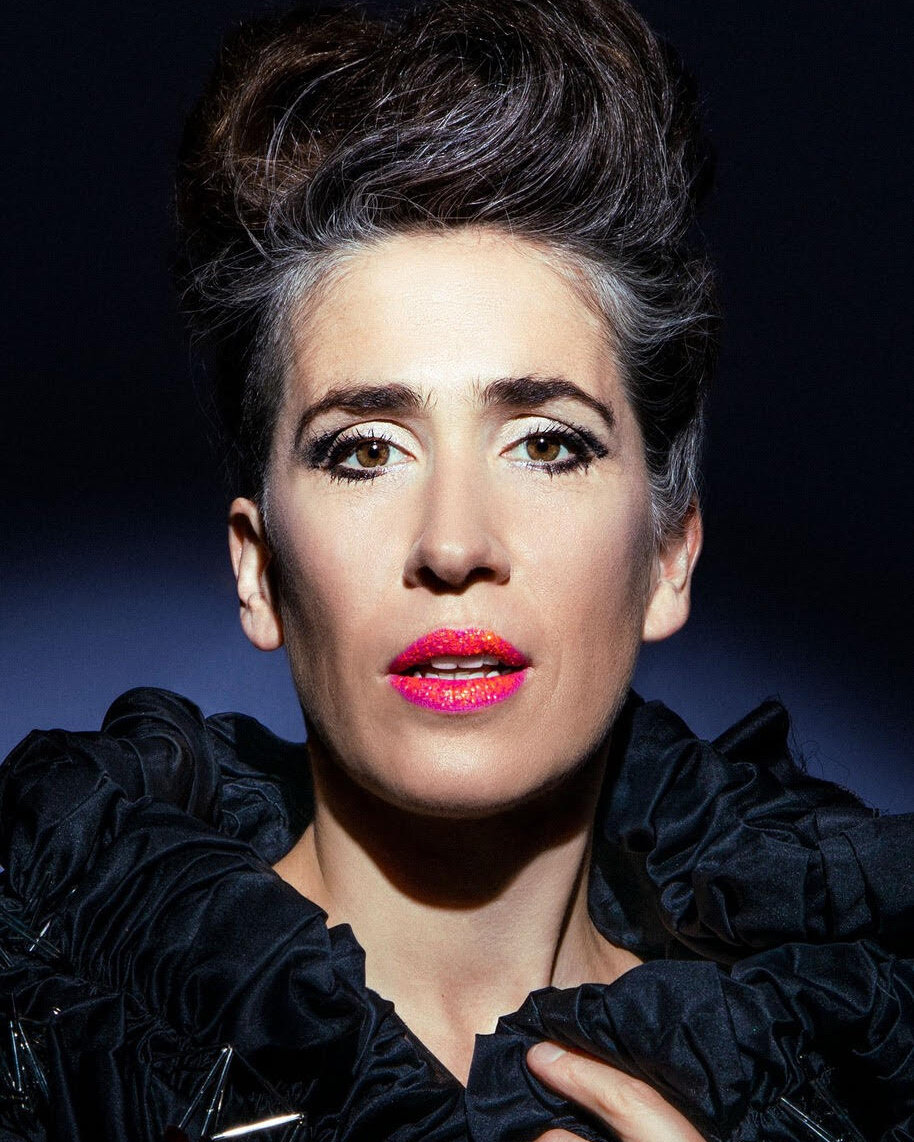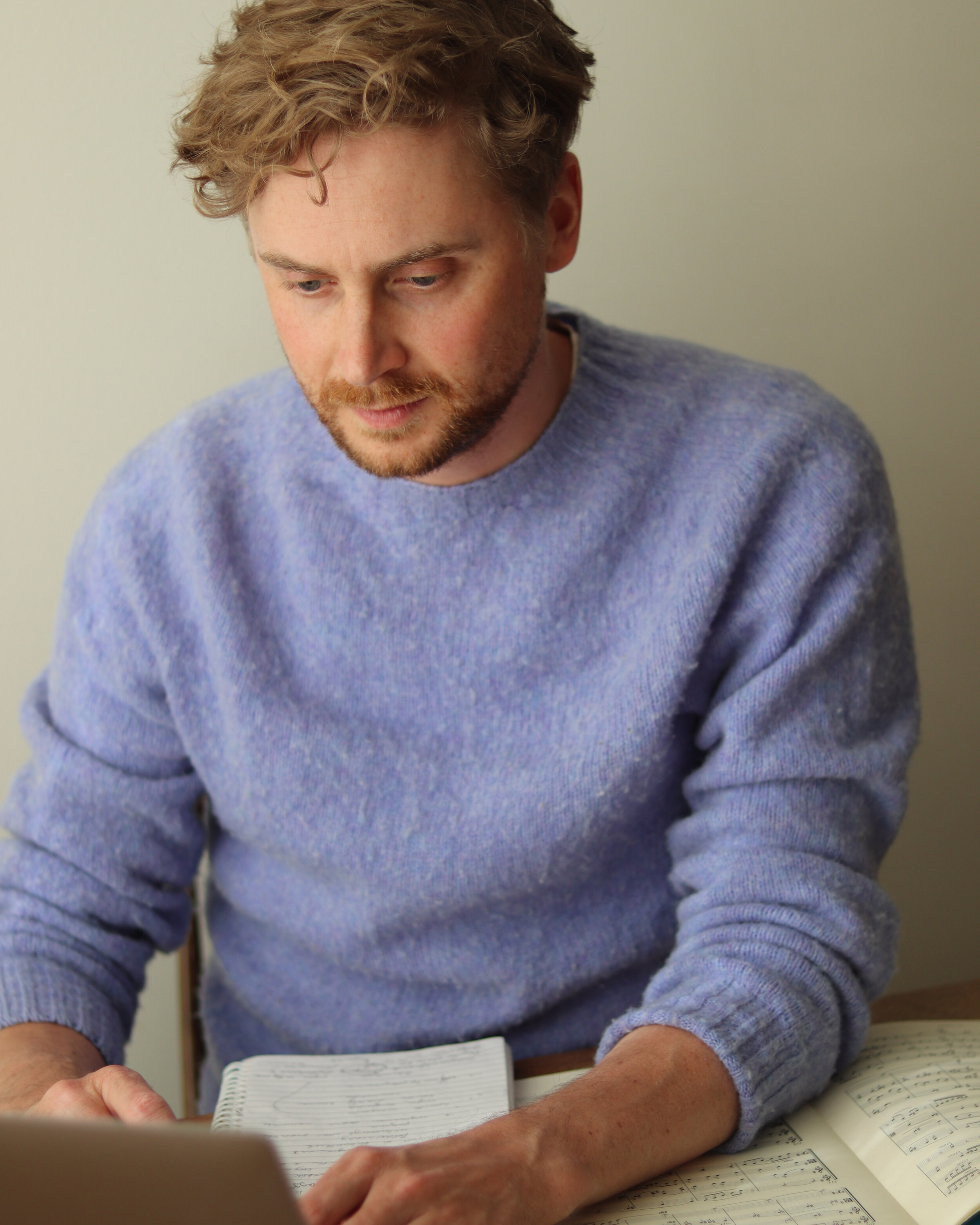2022 jury members will we announced soon!
2021 jury members
Imogen Heap
Award winning composer, recording artist and tech enthusiast.
Ryan Groves
Expert in AI-driven music composition and founder of Melodrive and Infinite Album.
Uncanny Valley
Music, sound and technology company and AI Song Contest 2020 winner.
Anna Huang
Research Scientist at Google Brain, working on the Magenta project.
Mark Simos
Songwriter, tune composer and professor at Berklee College of Music.
Hendrik Vincent Koops
AI researcher and composer working on AI Multimedia projects at RTL Netherlands.
Ajay Kapur
Associate Provost for Creative Technologies at the California Institute of the Arts.
Rujing “Stacy” Huang
Ethnomusicologist, postdoctoral researcher and singer-songwriter
Read more about the jury members below
Imogen Heap
As a self-produced composer, recording artist and tech enthusiast for over 20 years, Imogen Heap has multiple awards under her belt, her own independent music label and three honorary doctorates. Never sitting still, she has developed music gestureware MI·MU gloves and an integrated digital ID solution, The Creative Passport, to empower music makers to be the change toward a fair and flourishing music ecosystem. She has released under-the-skin hits such as Hide and Seek for grown-ups to The Happy Song for babies, composed the music for the Harry Potter and The Cursed Child stage show and is currently building her own AI system. Imogen is an artist’s artist, an entrepreneur, and a mother and is also an advisory board member for the Creative Industries Federation, a director of FAC and has collaborated with Ariana Grande, Taylor Swift, Jeff Beck, Nitin Sawhney, Jon Hopkins & many more.
Uncanny Valley
Uncanny Valley is an Australian music, sound and technology company. Charlton Hill, Justin Shave and Caroline Pegram are armed with decades of experience in the music industry, they are forging the path between artists and technology. They are the winners of the first ever AI Song Contest [‘Beautiful the World], have an ongoing collaboration with Google’s Creative Lab Sydney on ML tools for Musicians and have a AI advisory board of University academics and high level music industry professionals. Uncanny Valley is also behind the creative intelligence of the generative music engine memu.
“We are interested in harnessing the latest technology that can augment the way music is created and experienced and will be interested to see how others interpret this process and what the outcomes are. We are very much guided by music theory and applying our expert system into that process. The contest in 2021 allows for a much broader scope of entry, so we are rather curious to see what genres surface most often. The advancements in technology in one year are significant, so we look forward to seeing the varying approaches and uses of those too. We wish all the teams the best of luck in creating their next AI stadium rock anthem or dance banger!”
Mark Simos
Mark Simos, Professor in Songwriting at Berklee College of Music (Boston), is a respected songwriter, tune composer, teacher and author, with more than 150 songs recorded by prominent artists such as Alison Krauss, Ricky Skaggs and others. He has authored two Berklee Press books on songwriting, in addition to articles and book chapters. Prior to Berklee, he spent twenty years in software technology research.
“I hope to participate as adjudicator in this contest in the role of an avowed contrarian. As a songwriter and educator with a passionate curiosity about the songwriting process, and with a prior research background in AI, I question a number of embedded conceptual frames implicit in current approaches to AI-augmented musical composition. I am intrigued with ways this contest may yield insights into human aspects of creativity, in the context of both cooperative and antagonistic interactions with programmed systems. Yet I see these interactions, ultimately, less as that of human vs. machine than of two very different forms of human creativity. I intend to observe and, as appropriate, vigorously critique and challenge the process from this perspective.”
Ajay Kapur
Ajay is currently the Associate Provost for Creative Technologies at the California Institute of the Arts, as well as the Director of the Music Technology program (MTIID). He also co-founded and advises a Ph.D. Research Group in Wellington New Zealand called Sonic Engineering Lab for Creative Technology. A risk-taker and entrepreneur at heart, he has also co-founded multiple successful companies in the areas of education technology, experiential art, and artificial intelligence. He received an Interdisciplinary Ph.D. in 2007 from University of Victoria combining computer science, electrical engineering, mechanical engineering, music and psychology with a focus on intelligent music systems and media technology. Ajay graduated with a Bachelor of Science in Engineering and Computer Science from Princeton University in 2002.
“I would like to truly understand the process of creating the song. It would be great to see a visual score. It would also be great to see visual representation of the algorithms used and how they are used. How did teams implement the AI? How did they balance the science and the art side of the work?”
Ryan Groves
Ryan Groves is an expert in AI-driven music composition. He built the Best Music App of 2015, Ditty: a musical messenger that sang your texts automatically. He then founded Melodrive, the only real-time AI composer. He got his M.A. in Music Tech from McGill, and his work on computational music theory won Best Paper at ISMIR in 2016. Now, he is using AI to generate adaptive soundtracks for Twitch streamers with his new startup, Infinite Album.
“The field of AI as applied to creativity has undergone enormous change over the last 5 years. There are so many different machine-learning techniques available, that the craft of building an AI to compose music is quite open-ended. In creating your compositions, I am looking for the maximum amount of input from the AI system, and for participants to create a continuous dialogue with AI. Specifically, my focus will be on iteration. How did you use the AI tools to not only create initial musical material, but also to return ideas to the AI systems to have them re-interpreted and modified by the AI? I would like to see that the AI had a real impact on the creative process.”
Anna Huang
Anna Huang is a Research Scientist at Google Brain, working on the Magenta project. She is the creator of Music Transformer, and the ML model Coconet that powered Google’s first AI Doodle, the Bach Doodle, which in 2 days harmonized 55 million melodies from users around the world. She holds a PhD from Harvard University, masters from the MIT Media Lab, and bachelors in music composition from USC.
“Last year, we saw teams faced many challenges when using AI in their creative process, and were impressed by their creative strategies. It was also exciting to see musicians, producers, and ML practitioners work together towards a creative goal. This year, I am interested in understanding more how teams navigate their collaboration, from the musicians’ perspective to the ML practitioners’ perspective. How do you debate and support each other? How does using AI/ML tools impact your creative decision making process? What are the different roles and workflows that emerge? How do you iterate with each other, and with AI/ML tools, so that you are not only able to debug the tools but also debug your creative ideas?”
Hendrik Vincent Koops
Hendrik Vincent Koops is an AI researcher and composer, holding degrees in Sound Design and Music Composition from the HKU University of the Arts Utrecht, and degrees in Artificial Intelligence from the Utrecht University. After a research internship at Carnegie Mellon University, he completed his PhD in Music Information Retrieval at Utrecht University, studying the computational modeling of variance in musical harmony. Currently, he is working on AI Multimedia projects at RTL Netherlands.
“The AI Song Contest is an excellent way to research the possibilities of human-AI co-creativity. Last year, we saw how AI can help composers and researchers find new ways of composing music, writing lyrics and collaborating in diverse teams. We also saw that AI songwriting is challenging, with a lot of technical expertise needed - in addition to songwriting skills. This year, I am interested to see diverse teams working together to make their individual, specific knowledge accessible to each other. Can we make the process of exploring and curating multiple models and outputs more intuitive? Can we make models more interactive and steerable, and directly useful for musicians?”
Rujing “Stacy” Huang
Rujing “Stacy” Huang, scholar, singer-songwriter, and composer, completed her PhD (2019) in Ethnomusicology from Harvard University, where her work crossed boundaries between musicology, music theory and sound studies, as well as early Chinese history and philosophy. In 2020, she joined KTH Royal Institute of Technology (Stockholm) as a postdoctoral researcher on “Music Cultures & Artificial Intelligence”.
“As an ethnomusicologist, a songwriter, and a researcher of music AI, I am curious to see how participants in this year’s contest use all the tools available to assist their artistic expression. Technology in this particular scenario is not an end in itself, but a means to crafting a work of genuine art. Thus, in addition to the important topic of technological ethics, I will be focusing on the emotion, the story, and the main message a song is intended to communicate, and assess whether the deployment of AI actually helps in delivering these contents. The ethnomusicologist in me will also be looking for possible interactions between creative AI and musical traditions and practices beyond the Western popular domain.”
















